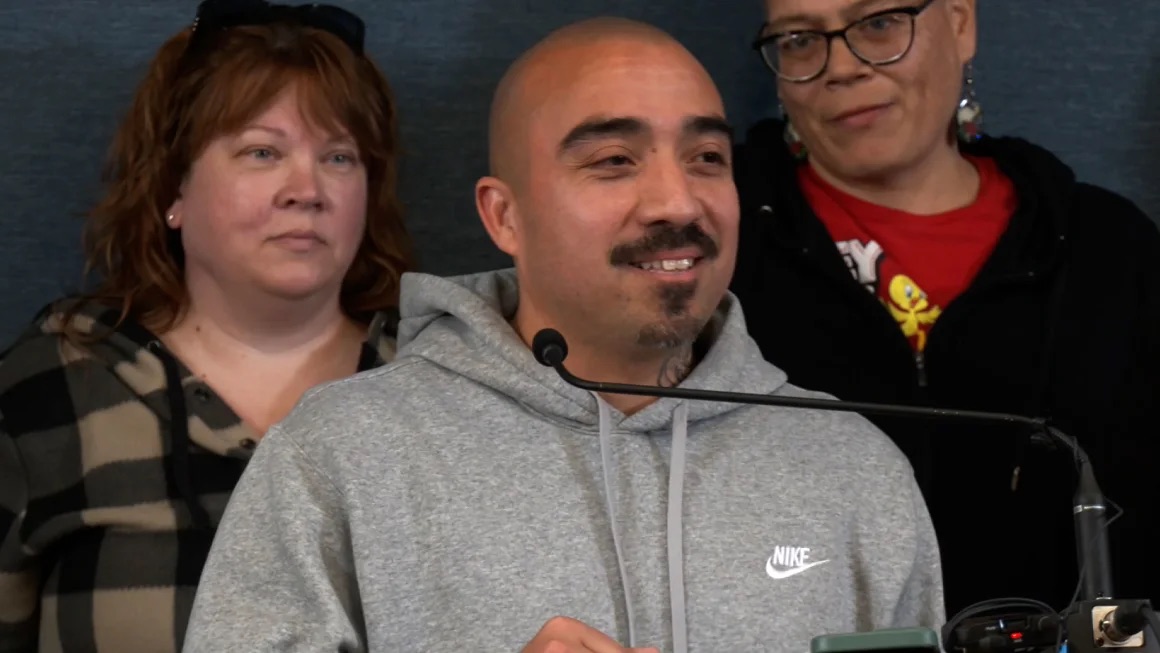MINNEAPOLIS, USA – After 16 years behind bars for a crime he did not commit, Edgar Barrientos-Quintana walked out of prison last week, a free man.
A Minnesota state court judge vacated his conviction for the 2009 murder of 18-year-old Jesse Mickelson following revelations of prosecutorial misconduct, unreliable witness testimony, and investigative failures.
Barrientos-Quintana, sentenced to life without parole for a drive-by shooting in Minneapolis, had always maintained his innocence.
His release follows an August report by a conviction review unit under Attorney General Keith Ellison’s office, which found multiple faults in the case against him.

On Tuesday, the Hennepin County Attorney’s Office dismissed all charges.
“Nothing can give Mr. Barrientos-Quintana those 16 years back, and for that, we are so sorry,” Hennepin County Attorney Mary Moriarty said at a news conference.
“When the criminal system does not function ethically, it causes significant harm.”
Faulty Case and Misconduct Uncovered
Judge John McBride, who vacated the conviction, cited egregious errors that deprived Barrientos-Quintana of a fair trial.
Prosecutors failed to disclose exculpatory evidence and relied heavily on shaky eyewitness testimony and unreliable statements from Marcelo “Sharky” Hernandez, the prosecution’s star witness.
Hernandez’s inconsistent timeline of events and accusations from other witnesses naming him as the potential shooter were suppressed during the trial.
The conviction review also highlighted misconduct by the Minneapolis Police Department, including flawed photo lineup procedures.
Investigators presented eyewitnesses with an outdated photo of Barrientos-Quintana, showing him with a shaved head despite evidence that he had a thick head of hair on the night of the crime.
This misrepresentation aligned with descriptions of the shooter as a bald Hispanic male, undermining the credibility of the identification process.
Further compounding the case were actions by the police and prosecutors tied to the reality television program The First 48.
Court documents revealed that the programme was embedded with lead investigators, manipulating the timeline of events for entertainment purposes.
These revelations raised serious questions about the integrity of the investigation.
A Family Torn, A Community Inspired
Barrientos-Quintana’s wrongful conviction and eventual exoneration have shone a light on systemic issues in the justice system.
According to the National Registry of Exonerations, over 3,600 individuals have been exonerated since 1989, with misconduct by law enforcement or prosecutors playing a role in the majority of these cases.
Julie Jonas, Barrientos-Quintana’s defense attorney and legal director of the Great North Innocence Project, began working on his case 11 years ago.
“He lost his freedom and his family lost a son, father, brother, uncle, and nephew. It was a tragedy,” Jonas said.
She described the emotional scene of Barrientos-Quintana’s release, with over 22 family members and cheering inmates witnessing the moment.
Barrientos-Quintana himself expressed gratitude for his legal team and family.
“You know it was going to happen, just system’s too slow,” he said at a news conference.
“Happy to be out here, man. Best week, it’s the best weekend. And more to come.”
Next Steps for a Wrongfully Convicted Man
As Barrientos-Quintana begins rebuilding his life, the Great North Innocence Project has set up a GoFundMe campaign to support him.
While he has not yet decided whether to pursue a civil lawsuit—such cases are often hindered by governmental immunity protections—he is eligible for state compensation under Minnesota law.
However, the process for obtaining those funds is lengthy and involves legislative approval.
For now, Barrientos-Quintana is focused on reconnecting with his family.
“Spending time with my family, I think that’s the best thing I can ask for,” he said.
“They were there for me from the beginning, and they’re always going to be there for me.”
The case has sparked calls for reforms to prevent similar miscarriages of justice.
Moriarty has pledged to review other cases and ensure greater accountability within the criminal justice system.







